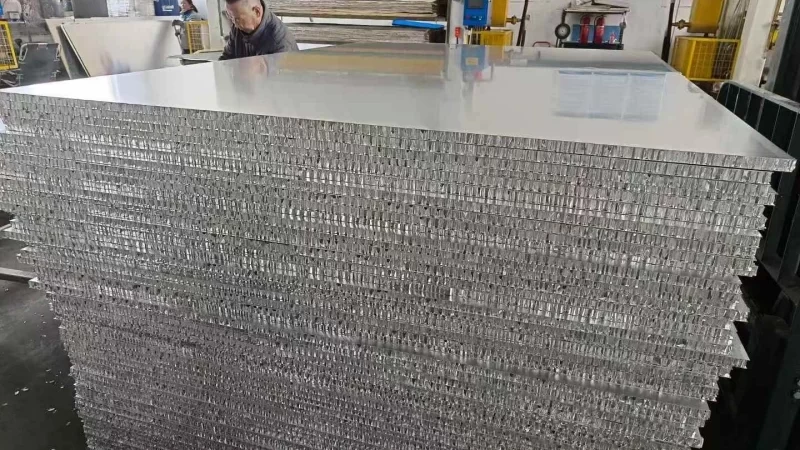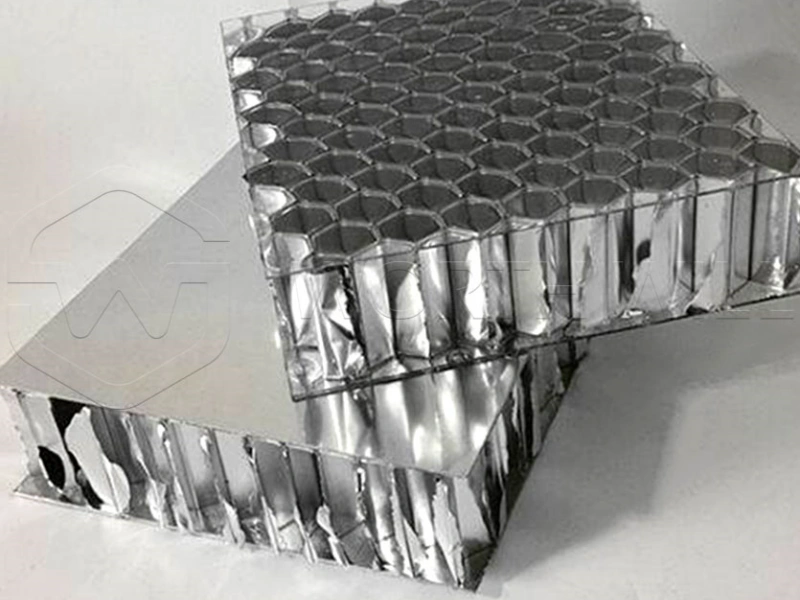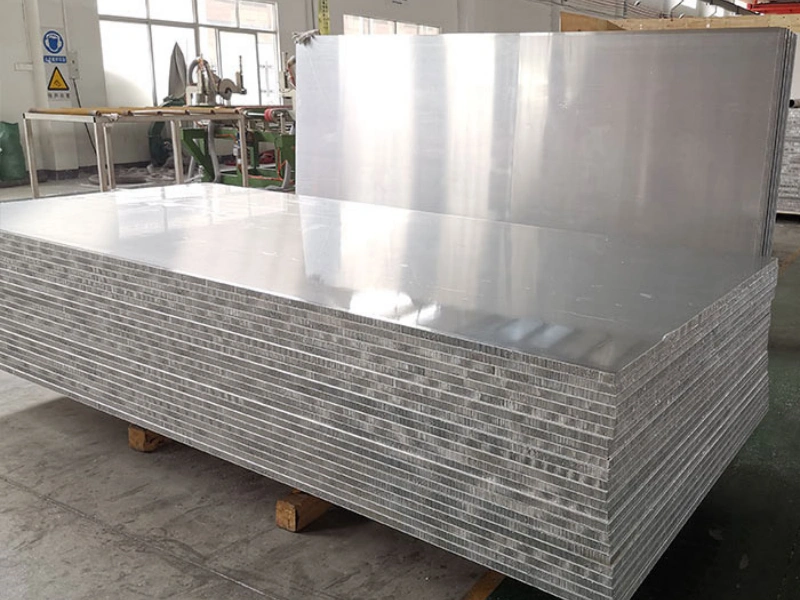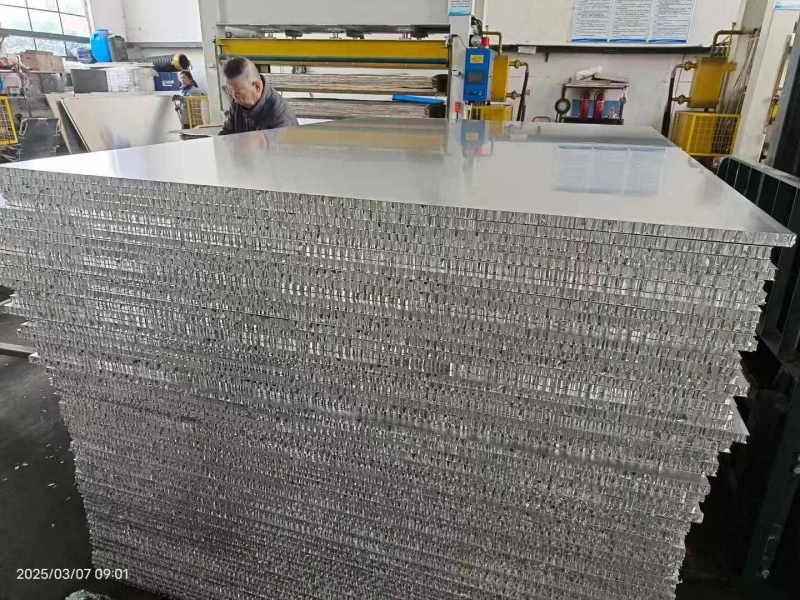Your Guide to Affordable Aluminum Honeycomb Panels
In modern construction, design, and manufacturing, the demand for high-performance materials is constantly growing. Among these, aluminum honeycomb panels have emerged as a revolutionary solution, prized for their unique combination of lightness and incredible strength. If you’re looking to source these advanced materials, understanding how to find aluminum honeycomb panels at best prices without compromising on quality is key.
What Are Aluminum Honeycomb Panels?
At their core, aluminum honeycomb panels are a type of sandwich panel. They consist of a lightweight honeycomb core (made from aluminum foil, structured like a beehive) bonded between two thin aluminum skin sheets. This clever construction creates a panel that boasts an exceptionally high strength-to-weight ratio, making it incredibly rigid yet remarkably light. They are often referred to as lightweight panels due to this characteristic.
Why Choose Aluminum Honeycomb Panels?
The advantages of using aluminum honeycomb panels are significant, making them a preferred choice across various industries.
- Exceptional Strength-to-Weight Ratio: This is their standout feature. Despite being lightweight, these panels offer impressive structural integrity and rigidity, outperforming solid aluminum sheets in many applications.
- Outstanding Flatness: The honeycomb structure provides excellent stability, ensuring the panels remain perfectly flat, even over large spans. This is crucial for aesthetic applications like building facades.
- Excellent Fire Resistance: Aluminum is non-combustible, and the air trapped within the honeycomb cells limits the spread of flames, making these panels a safer choice for many building codes.
- Superior Sound and Thermal Insulation: The air pockets in the honeycomb core act as natural insulators, offering good acoustic dampening and thermal efficiency, contributing to energy savings.
- Versatility and Durability: Aluminum honeycomb panels are highly durable, resistant to corrosion, moisture, and impact. They can be easily cut, formed, and finished to meet diverse project requirements, making them truly versatile solutions.
Classification and Types of Aluminum Honeycomb Panels
Aluminum honeycomb panels come in various configurations, each designed for specific performance needs:
- Core Density and Cell Size: The size of the honeycomb cells and the density of the aluminum foil determine the panel’s strength, weight, and cost. Smaller cells and denser foil generally mean higher strength and cost.
- Skin Thickness and Alloy: The thickness of the aluminum skins (top and bottom layers) and the specific aluminum alloy used impact the panel’s overall stiffness, durability, and corrosion resistance.
- Panel Thickness: Total panel thickness varies widely, from thin decorative panels to thick structural ones, influencing rigidity and insulation properties.
- Surface Finishes and Treatments: This is where custom aluminum honeycomb panels truly shine. Options include:
- PVDF/PE Coating: For durable, long-lasting color and weather resistance, popular for exterior architectural panels.
- Anodized Finish: Provides a hard, corrosion-resistant surface with a metallic luster.
- Brushed/Polished Finish: For a sleek, modern aesthetic.
- Stone, Wood, or HPL Laminates: For decorative applications that mimic natural materials.
- Perforated Skins: For acoustic solutions.
- Bonding Adhesives: The type of adhesive used to bond the skins to the core is critical for the panel’s structural integrity and performance under various environmental conditions.
Applications of Aluminum Honeycomb Panels
The unique properties of aluminum honeycomb panels make them suitable for a vast array of applications across many industries:
- Architecture and Construction:
- Building facades and exterior cladding (for lightweight, rigid, and flat surfaces).
- Interior wall panels and partitions (for lightweight dividers and aesthetic appeal).
- Ceiling panels and suspended ceilings.
- Cleanroom walls and ceilings (due to their smooth, non-shedding, and easily cleanable surface).
- Canopies and awnings.
- Balcony panels.
- Transportation:
- Aircraft interiors (flooring, galley walls, luggage bins) due to extreme lightweight requirements.
- Marine vessels (shipbuilding, yacht interiors, bulkheads) for weight reduction and corrosion resistance.
- Railcar components (floors, walls, ceilings).
- Automotive industry (trailer floors, truck bodies, recreational vehicles).
- Industrial and Manufacturing:
- Cleanroom construction and equipment.
- Machine covers and enclosures.
- Work surfaces and tooling.
- Structural components in robotics.
- Furniture and Design:
- Lightweight tables, desks, and cabinet doors.
- Display stands and exhibition booths.
- Retail fixtures.
- Elevators:
- Cabin walls and ceilings (for lightweight and aesthetic appeal).
- Solar Panels:
- Backing material for some types of solar collectors.
Factors Influencing Aluminum Honeycomb Panel Prices
When seeking aluminum honeycomb panels at best prices, it’s crucial to understand what drives the cost:
- Material Costs: The price of raw aluminum, the type of aluminum alloy, and the quality of adhesives all contribute.
- Panel Dimensions: Larger panels, or panels with unusual dimensions, may incur higher manufacturing costs due to increased waste or specialized handling. Panel thickness also plays a significant role.
- Surface Finish and Treatments: Specialized coatings (like PVDF), anodizing, or decorative laminates add to the cost. Standard finishes are typically more affordable panels.
- Order Quantity: Manufacturers often offer significant discounts for bulk orders. Small, custom orders will generally have a higher unit price.
- Customization Requirements: Panels with unique shapes, cutouts, or specific technical requirements will be more expensive than standard sizes and designs.
- Supplier Reputation and Quality: Reputable manufacturers and suppliers that adhere to strict quality control standards may have slightly higher prices, but this often guarantees a better, more consistent product and long-term value.
- Shipping Costs: Due to the size of panels, shipping can be a substantial cost, especially for international orders or remote locations.
Tips for Finding Aluminum Honeycomb Panels at Best Prices
Securing cost-effective solutions without sacrificing quality requires a strategic approach:
- Research Multiple Suppliers/Manufacturers: Don’t settle for the first quote. Reach out to several aluminum honeycomb panel manufacturers and distributors to compare prices, lead times, and product specifications.
- Request Detailed Quotes: Ensure quotes clearly break down unit price, finishing costs, minimum order quantities (MOQs), and shipping charges.
- Consider Standard Sizes vs. Custom Cuts: If your project can accommodate standard panel sizes, you’ll likely save money compared to ordering custom-cut pieces, as it reduces manufacturing waste and complexity.
- Evaluate Total Cost, Not Just Unit Price: A lower unit price might be offset by high shipping costs or longer lead times that impact your project schedule. Factor in all associated expenses.
- Look for Bulk Purchase Opportunities: If you have ongoing needs, ordering in larger quantities can significantly reduce your per-panel cost.
- Understand Specifications (Don’t Over-Specify): Only request the properties you truly need. For instance, if extreme fire resistance isn’t critical, don’t pay for the highest-grade fire-rated panel. This helps manage panel prices.
- Check for Certifications and Quality Standards: While seeking best prices, never compromise on quality. Ensure the supplier meets relevant industry standards (e.g., ISO, ASTM, CE) to guarantee product performance and safety.
- Negotiate: Especially for larger orders, there’s often room for negotiation on price or terms.
Where to Buy Aluminum Honeycomb Panels
You can source aluminum honeycomb panels from several channels:
- Direct from Manufacturers: Ideal for large-volume orders, custom specifications, and when you need direct technical support. Many aluminum honeycomb panel manufacturers have sales teams dedicated to project-based inquiries.
- Distributors/Wholesalers: These companies stock a range of standard panels and can often provide quicker turnaround times for smaller to medium-sized orders. They often have relationships with multiple factories.
- Online Marketplaces: While some specialized online platforms exist, exercise caution for large or custom orders. Always verify the supplier’s credibility, product specifications, and return policies.
Conclusion: Investing Smart in Aluminum Honeycomb Panels
Aluminum honeycomb panels represent a powerful, versatile, and durable material choice for a multitude of applications. By understanding the factors that influence their cost and employing smart purchasing strategies, you can confidently find aluminum honeycomb panels at best prices without compromising on the high-quality and performance your project demands. Focusing on value, not just the lowest price, will ensure your investment in these advanced panels delivers long-term benefits and superior results.



